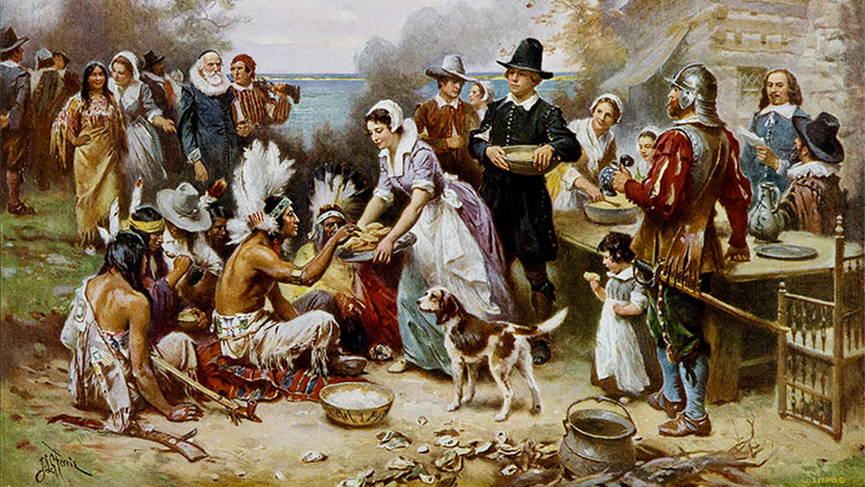Thanksgiving, a celebration inspired by the Bible

General
Historically, Thanksgiving dates back to the arrival in North America of the first English colonists. At the outset, the colonization experience was hard, and half of those who arrived died of scurvy. The rest owed their survival to the aid of the Indigenous people who provided them with food and medicinal plants and taught them to hunt and fish and grow corn.
Historically, Thanksgiving dates back to the arrival in North America of the first English colonists. At the outset, the colonization experience was hard, and half of those who arrived died of scurvy. The rest owed their survival to the aid of the Indigenous people who provided them with food and medicinal plants and taught them to hunt and fish and grow corn.
To celebrate the first harvest in the fall of 1621, the governor declared three days of thanksgiving. The colonists invited Chief Massasoit of the Wampanoags, along with 90 of his men, to come and participate in the feast, by way of thanking them for their help. During that meal, wild turkeys and pigeons were offered.
On January 31, 1957, following the influence of the American Thanksgiving holiday, the Canadian Parliament proclaimed that the second Monday of October should be “A Day of General Thanksgiving to Almighty God for the bountiful harvest with which Canada has been blessed…”
Biblical reference
Since its inception, the Thanksgiving holiday has incorporated biblical allusions and symbolism. Old Testament texts recount that God extended his grace (hesed) to his people and promised to protect them as their Saviour. The people knew that they were blessed by God and committed themselves to his Covenant. In return, the Hebrews were encouraged to give thanks to God for his blessings.
Eucharistic Thanksgiving
Thanksgiving in the New Testament is associated with grace and salvation. In Romans 6:14, Paul writes, “For sin will have no dominion over you, since you are not under law but under grace.” The Lord saves by grace those who believe in Jesus Christ. The response to this heavenly gift is an attitude of thanks on the part of believers. The Greek root of our word “Eucharist” literally means “thanksgiving.” Thus, every Eucharistic celebration is an occasion to give thanks to God for his grace.
This celebration, then, is a symbol of that heavenly gift and the collective thanks we express for it.
Happy Thanksgiving, and I pray that you may appreciate the gifts from God in your lives.
Sébastien Doane is Professor of Biblical Exegesis in the Faculty of theology and religious scoences at the Université Laval, Quebec.

Comment
Comment
Add new comment